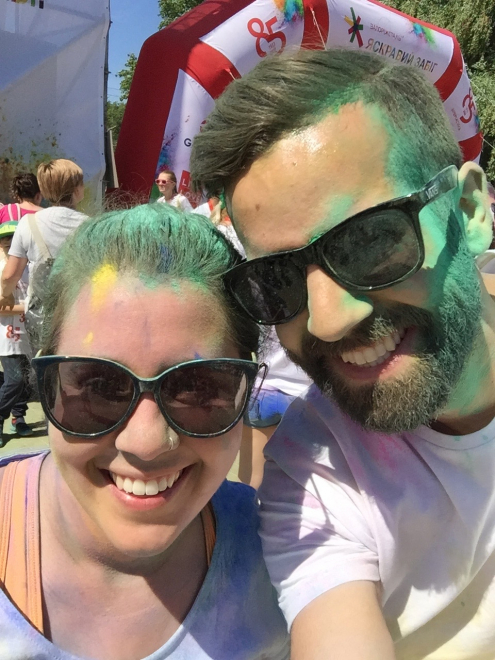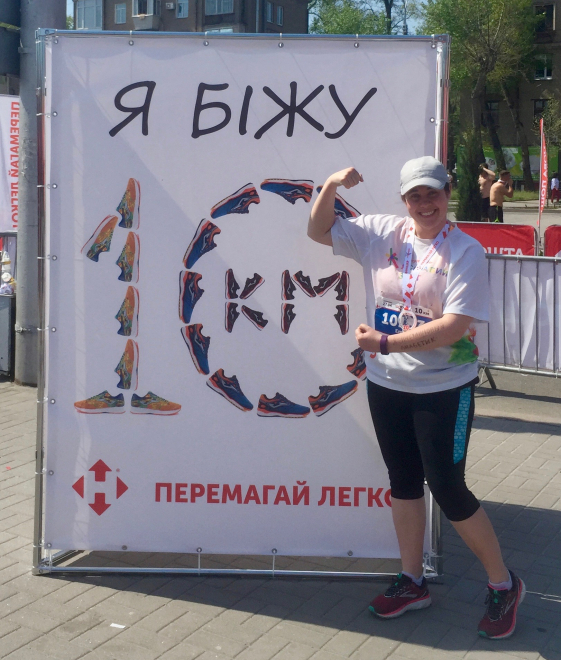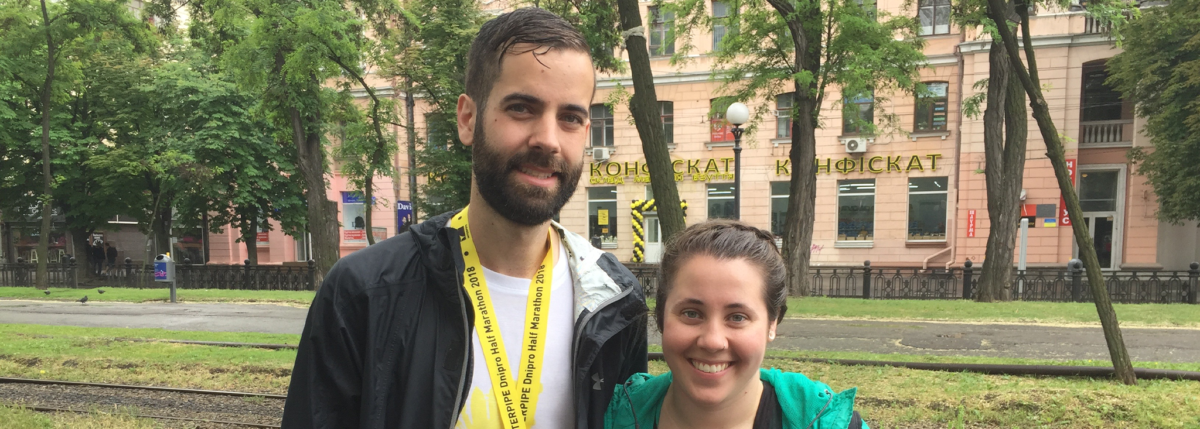Running For My Life
Has anyone ever made a promise to you that they couldn’t keep?
When I was 4 years old, I was diagnosed with type 1 diabetes. Although the memory of that day is vague—a pink light in an elevator, confusion about why my parents were sad, gloved nurses hurting my arms with needles—I do remember the doctor’s promise to me. Take good care of yourself, keep your A1Cs under 8, and you’ll be able to avoid long-term complications.
Facing the facts
It was a promise that set me on course for unattainable goals. I put extreme pressure on myself as a child, categorizing all my blood glucose numbers as “good” or “bad.” Once, when I was around 10 years old, I remember crying because my A1C had crept up to 7.5. Year after year, I kept high standards for my health, not only reminding myself of what that doctor had said, but making it a little more intense too—keep your blood sugars under control, keep from going blind and losing your feet. But in 2017, I learned the undeniable reality of type 1 diabetes, and the falseness of that doctor’s promise. I went in for my annual eye check, and the optometrist informed me that I had two small bleeds in the back of my eye near my macula. No matter how hard I had worked, no matter how much pressure I had put on myself, no matter how perfect my numbers had been, I had not been able to outrun diabetic complications.
The devastation I felt was unimaginable. I blamed myself—I had failed. It felt so unfair, I was only 28 years old… How could this already be happening to me? Despite my best efforts, my worst fear had become a reality. My mind started to spiral, and I fell into a deep depression. I cried myself to sleep for weeks after my diagnosis. I was at a loss—my body had betrayed me. Soon, the thought of type 1 complications became all-consuming. It was the first thing on my mind when I woke, and the last thing I thought about before falling asleep at night. I needed to find a way to take back control of my life. I needed an outlet that could help me turn off all of the noise in my head.
A new lease on life

And that’s when I started running. I didn’t just want to exercise, I wanted to do something that could help clear my mind, teach me perseverance, endurance and prove to myself that my life wasn’t over, despite dealing with the beginning stages of diabetic retinopathy.
My first few runs were awful. I didn’t like running at all, but my husband (who is my greatest ally, support, best friend and not to mention, a marathoner) encouraged me to stick with it. I could barely run for eight minutes when I first started. But even just after eight minutes of running, I felt this great victory over my body—but also a strange oneness. It was as if my body was learning how to work with my mind, and not against it. And even during short runs, I found space in my mind to work on myself and improve my spiritual life—to talk with Jesus, to cry through struggles and to even feel peace about the things I couldn’t change.
I kept at it, lacing up my shoes, strapping on my running belt filled with glucose tabs, and pushing a little further each morning. The mental pain I had been feeling slowly became less and less present, and my excitement about running grew. I started feeling less overwhelmed by the things I couldn’t control, and more at peace, making the most of what God had given me in my life. And the body that I had hated so much in one moment soon became my friend. The small victories of running 10 minutes, 15 minutes, 20 minutes, began to outweigh the frustrations of being type 1.
Going long
I continued regularly running for the next few months. Soon, I discovered that I truly liked running, especially long runs. And one day, just like with all great relationships, I had an experience that transformed my “like” into “love.” I was at a conference in Kiev, Ukraine, and had an excruciatingly long night of lows. My pump alarmed every couple of hours, sugar low after sugar low. I was so discouraged. My husband and I had planned on running that next morning, but as the night went on, I just kept thinking about how incapable I was. Putting on my gear and pushing through a run felt like a total impossibility.

But as the sun rose, I remembered a Bible verse, “Weeping may endure for a night, but joy comes in the morning.” My heart changed. I needed a win—I deserved a win. I got dressed, pulled on my shoes, and went for a reviving run. It had been my longest run yet—35 minutes—and it was exactly what I needed. A bad diabetes night was no longer strong enough to cause a bad, discouraged day. My body, which used to be my enemy, was now working with my mind, taking me deeper into the forest, stride by stride. My mind was clear, encouraged and even happy. And I was sold—sold on running for life.
Truth be told
It’s an undeniable fact, that no matter how hard we try, we can’t prevent all bad things from happening. But even knowing that, we don’t have to surrender our minds to fear and discouragement. Running reminds me that there’s more to life than my diagnosis. There’s more to life than a number on the screen of my continuous glucose monitor (CGM). Running is a tool that I use to keep my mind clear so that I can get the most out of each day, get the most out of my body, and give myself a positive outlet for the anxiety that builds up over time.
If you feel like your mind and body are out of sync, or you just can’t shake some discouraging news or a diagnosis you recently received, give running a try. And maybe we’ll meet on the next starting line. I’ll be the one with a sensor on my bicep, pump attached to my side, type 1 diabetic written on my arm and a huge smile on my face.





